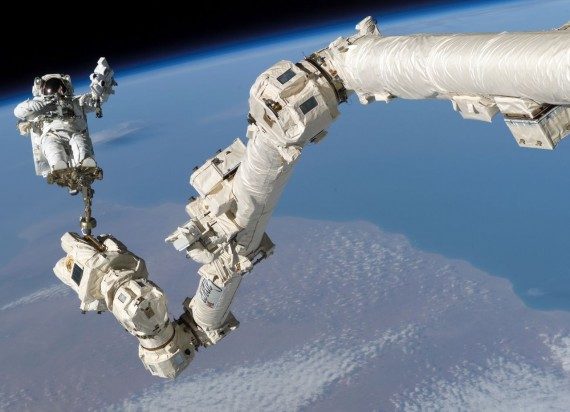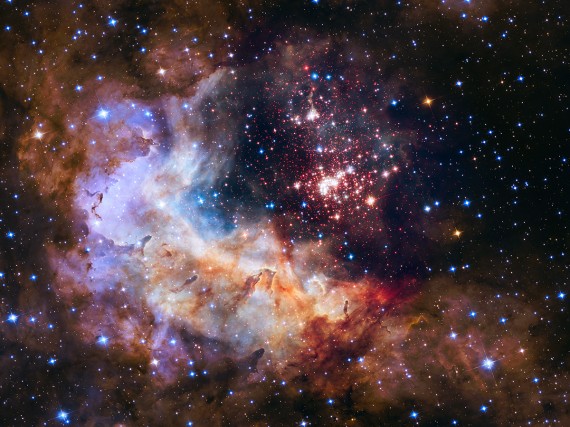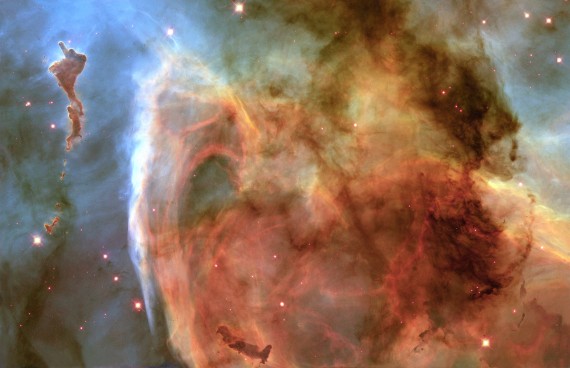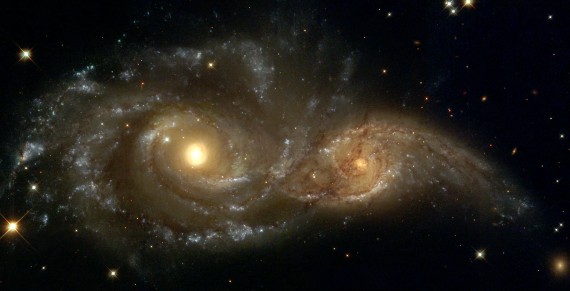Humans have been looking up to the sky for thousands of years, thinking and trying to understand what are those tiny shining dots can be and what is the story behind them. At night, when thousands of stars can be visible to the naked eye, for some unknown reason most of us gets amazed and cannot stop staring at them. There is just something that takes our attention and our curiosity makes us wonder.
For the last few thousand years this had a great impact on human species. We got inspiration that surely contributed to many civilizations starting from cave drawings, through the Greek myths and philosophers, until today when we mostly use a scientific approach.
Today we can say that we have already reached several significant achievements in space exploration, for example going to the moon or sending rovers to Mars but most likely this is just the beginning of something way bigger. However achieving these costs money, as a matter of fact a lot of it. Today, our society is facing many global problems that are waiting to be solved, for instance finding a sustainable clean energy source, (but for this, nuclear fusion might be the answer). We also struggle with poverty, increasing population, global warming, undeveloped countries, unemployment, corruption, starvation, weak health care and so on.
After people see all these, they started to question the importance of space exploration, more specifically the money spent on it. Many argue that this money could be turned onto other areas that needs development more. But is this really wasted money? What benefits did space exploration provide to humanity? Is it part of our existence and characteristic to seek for exploration? These are all extremely important questions in the 21st century and probably they will be even more important as we expand our knowledge.
To start with, it is essential to understand the basic concept of space exploration. “Space exploration is the ongoing discovery and exploration of celestial structures in outer space by means of continuously evolving and growing space technology.” (Space Exploration). We tend to use the word “space” as it would be just a single thing, however in reality it covers more than what we humans could ever imagine. Another common misconception is that in space only cold dry rocks flying in random directions can be found. In reality it has planets, stars, cluster, solar systems, galaxies, black holes, supernovas, background radiation etc. and of course; cold dry rocks. Not to mention that these are only the concepts that we know about today.
Usually when we use the term space exploration we automatically associate it with NASA, which stands for National Aeronautics and Space Administration and was founded in 1958 as the part of the U. S. government. NASA is the leading space research organization in the world and the analysis will be based on it, also the United States will be the main focus of issue.
The peak point of space exploration was the so called space race (1955–1972) between the Soviet Union and the United states. The U.S. and The U.S.S.R were competing, who can first send a man to the moon. This required an extremely high budget for NASA that created the conditions for the fast improving of space technology. Looking back at it, we can clearly see the effect of the money spent on it and how much we achieved with it.
At the time all rocket launches were broadcasted on TV that had a great impact on the society. People were excited about the whole concept of space and the achievements of NASA, they knew the name of astronauts and every kid wanted to become one. When the original goal was met and Neil Armstrong became the first man on moon, the program slowly started stagnate, just as the social interest. This of course did not mean that NASA and other space agencies had shut down, but sadly it indeed meant that the budget was cut and less focus was given to space launches. The exploration had continued and many ongoing researches were working on different projects such as deeper understanding of weather and climate change, geology, aerodynamics, thermodynamics and so on. However it was an obvious setback. The following significant program that got the world’s attention was the Mars rover, but people’s excitement did not last long.

Recently NASA came up with quite many ambitious plans for the near future. “Within the next few years, the space program is expected to improve our knowledge of solar energy power, cryogenics, and robotics” (Why is Space Exploration Important?) and more. To achieve all these they requested a higher budget, however Barack Obama has cut NASA’s budget in 2013 by 59 million dollars, reactions to the cuts were mixed. The budget reductions were probably a response to complaints by citizens about the high costs of space exploration.
There are several arguments against space exploration among people these days. The most significant is that it simply costs too much. Many claims that the money should be rather spent on improving of the health care system or decreasing the unemployment rates by creating jobs. Others say that since there are millions of people starving in the world it is a sin to spend money on space, it should rather be spent on them. Many of the above mentioned states that they are not fully against space exploration, just at this specific time, humanity should rather focus on solving our own Earth related problems first and then later spend money on space exploration. Others point out that it is not logical to explore other planets when we haven’t even fully explored our own. There are also some groups that are against it because of religious reasons or they just simply say that mankind is meant to stay on planet Earth. These are the most common counter arguments that can be found among others, when asking individuals or searching online.
Considering the above mentioned points makes some of us wonder if that money really should be spent on it, since we might see logic in a few of them, but as soon as we take the time to dig into the actual input and output of the project, we will soon realize that they are not quite right.
To back this up, let’s start with how much money it actually costs, followed by what is that many spent on.
(For detailed budget spending, see; http://www.nasa.gov/sites/default/files/files/508_2015_Budget_Estimates.pdf )
As we can see in 2013 NASA have spent nearly $17 billion of the total yearly budget of the United States. If we compare this number with the $756 billion, which is the military budget (44 times of NASA budget), we might reconsider what is expensive for tax payers. Just as a footnote, let’s try to imagine where the human race would be if they spent all the military budget on space exploration (or any other relevant areas) and think about how much good these two did to the world.
It seems like, it is really easy to pick on space exploration and say there are people starving in Africa, but this is not the case of either launching space shuttles, either feeding the world. If they would shout down NASA from tomorrow, would the world be a better place? Would that money really be spent on good? Sending that money for subsidies to for example Somalia, would provide short term benefits to a small group of people. While – as we will see in the later investigation – by investing in this, we get many long term benefits on many levels for the whole society. (To avoid any misunderstanding; I am for helping people in need, just not from the space research budget.) Perhaps instead of taking NASA’s budget, they could reduce the military expenses just by 3.0%, than they would save even more money.
What is also commonly misunderstood but extremely important is what all this money is spent on. NASA does not launch all his budget in space, all their budget is spent on earth, it does not disappear from the economy. Employees of NASA are passionate scientists who loves their jobs, but they also have to pay their bills so most of the budget goes to salaries of their workers. NASA employs “more than 18,000 civil service employees and more than 40,000 contractors and grantees work.” (NASA’s Workforce). So it does indeed create many jobs. The money goes to other companies too that works for NASA making jobs there too. And when these people spend their salaries on any goods, it gets back to the economy.

Going into space is not easy. NASA has been continuously facing all sorts of problems in many areas since their startup. But through hard work and excellent engineering, they are overcoming these problems one by one pushing our barriers further out. Many times resolving a problem requires developing a new technological advancement that they will use on their missions. This does not only benefit the astronauts, once the technology is developed, eventually it will find its way back to the civilian market in more cases than we would think. Just to mention a few examples for these so called spin-offs;
Mobile phone, telecommunication and GPS. Without space exploration we could not have satellites orbiting the earth that allows us to use our cell phone anytime, anywhere. We could not have navigation in our car or even get weather forecast.
“Those thermometers that are inserted in your ear nowadays and take your temperature in seconds? The technology was initiated by scientists who wanted to measure radiation from stars and planets. And doesn’t the bottom of your tongue appreciate it.” (Dan Majors, July 20, 2009)
„The first integrated circuit — the forefather of the modern microchip — was built by Texas Instruments but funded by the Apollo program and the Air Force’s Minuteman Missile Project,” Mr. Lockney said. „They developed it, but the customer was NASA.” (Dan Majors, July 20, 2009) Today it can be found in any mobile phone, computer, car and basically all electronics.
“Enriched Baby Food. Commercially available infant formulas now contain a nutritional enrichment ingredient that traces its existence to NASA-sponsored research that explored the potential of algae as a recycling agent for long-duration space travel.” (John Jones, NASA, 2008) “Water purification. This system, tentatively scheduled for launch in 2008, will make use of available resources by turning waste water from respiration, sweat, and urine into drinkable water. Commercially, this system is benefiting people all over the world who need affordable, clean water” (John Jones, NASA, 2008)
Aerodynamics has served and serves as one of the bases that NASA has been developing and building on since the beginning, which therefore deserves an own paragraph. Aerodynamics is “The study of the properties of moving air and the interaction between the air and solid bodies moving through it.” (Oxford Dictionaries) Aerodynamics can be found in the engineering of every moving vehicle or object that we use today, mostly airplanes, cars motorbikes or even bicycles. The importance of aerodynamics is directly proportional to the speed you travel with, so for the future, as we will travel faster and faster it is essential to have great knowledge on this matter. NASA has been expanding our knowledge of aerodynamics for about 50 years, which’s benefit is unquestionable; it made commercial flights safe, military fighter jets fast, and cars fuel efficient (and also fast).
We shall not forget that these are just a few, out of the hundreds and thousands of examples, from all technology that has been invented by NASA or companies co-operating with NASA. “Spin-off products from space research have already repaid the original investment many times over“ (marnixR, May 21st, 2007). The first step, the creation of the technology is just the surface of its positive impact on the society, once the technology is invented, someone will see potential and use for selling it and eventually it will appear on the commercial market, available for everyone. This means that there will be companies producing, transporting and selling these, creating more jobs and positively influencing the economy. Later, the technology will be part or bases of another, newer technology which starts the whole cycle again, but some parts of it will still could be originated back to the invention by NASA (or the co-operative company).
Not all benefits that space exploration provides to the society can be measured by numbers or technology. For instance the impact of space exploration on education is unquestionable, but hardly measurable. It starts in school where it gives inspiration to children and easily gets their attention because it is simply interesting and exciting. Telling students that they can be the first man on mars gives huge motivation to them to continue with science studies. Thanks to space exploration more people decides to study sciences and become mathematician, physicist, biologist etc.
Another hardly measurable aspect is the knowledge that we gain. Some says knowledge is the most valuable quality one can have, others does not put such huge emphasis on it. But the amount of knowledge we have gained in most of the science areas by studying space and other planets cannot be denied. Astronomy, astrobiology, planetology, aerodynamics, thermodynamics, physics, biology, geology, chemistry, geodesy, mathematics etc. went through tremendous improvements and there is way more to come. Space exploration confirmed that we live on a planet, without it we couldn’t even have a picture of Earth, let along satellite maps. Without observing and studying something that we don’t understand, we cannot expand our knowledge. Just staying within the well-known environment without risking and trying out new things, humanity cannot develop, or at least cannot develop sustainably.
It also worth mentioning that space programs and expeditions leads to international collaborations these days. NASA has several joint program with ESA (European Space Agency), while Russia is providing technology to the Chinese space program. If countries are working together, helping each other in solving the problems through co-operation, it gives benefit, not to a single country but to the whole world.
As we could see space technology engineering gives advantages to all other industries. But these advancements technological breakthroughs and benefits that were listed above does not cover all the reasons why space exploration is important. These are just the by-products of the process, not the main motivation for it. There are many more reasons that could be listed here, but considering a few of the most relevant, rational and logical path for the future of humanity is definitely one of them. As Stephen Hawking, the well-known astrophysicist explains;
„Our population and our use of the finite resources of planet Earth are growing exponentially, along with our technical ability to change the environment for good or ill. But our genetic code still carries the selfish and aggressive instincts that were of survival advantage in the past. It will be difficult enough to avoid disaster in the next hundred years, let alone the next thousand or million. Our only chance of long-term survival is not to remain lurking on planet Earth, but to spread out into space.” (Stephen Hawking, 11/18/2011)
Life is a virus, it starts at one particular point, then spreads without limits unless someone or something stops it. Civilization started just at a few spots on Earth, then rapidly started to spread, if we put this on a bigger scale with longer time period, we can expect to see the same pattern with space and other planets. Rationality suggests, that as our forefathers were not satisfied with the small piece of land they had, they started to conquer the world. We and the next generations will also not be satisfied with the Earth either, so as soon as the technology will be available, in the next few thousand years we will conquer the galaxy.
Another aspect to this is a so called Plan B for the humanity. As Steven Hawking highlighted, there is a chance that we destroy our planet or an external phenomena such as a huge meteorite can extinct humanity. If so, isn’t it our duty to ensure the survival of our species? To make that possible, space exploration is essential for the purpose of prevention. By making ourselves able to reach out further than our backyard, we will not be vulnerable to external forces anymore.
Sadly with NASA’s limited resources, it does not develop as fast as it could or should. On the other hand the private sector is catching up pretty fast. For example SpaceX (Space Exploration Technologies Corporation), is the biggest private space research and space transportation provider that promises civilian space visits in the near future. It is already in close co-operation with NASA and in March 2013 it docked the first private module to the ISS (International Space Station). Currently working on a reusable rockets that will tremendously decrease the costs of space launches. The key to the future is not to do less, but to do more with less.
Another huge motivation can be found in the exploring characteristic of humanity. As how I started the article “Humans have been looking up to the sky for thousands of years” means that we want to understand. It is coded in our genetics that we are curious about the unknown, want to explore the unexplored and be where no one has ever been before. We are never satisfied with what we have and even though it is considered a bad characteristic these days, if we think about it, this is what keeps alive and taking humanity further for thousands of years. This makes us different from animals, we want to become more, while animals are satisfied with what they have, or never even think of becoming more.
If we lose this characteristic and stop learning from the outside world, and start to turn inwards to only focus of what we have, we will stop developing. Societies that stop exploring, stops progressing. A perfect example for this is China during the Ming dynasty when they decided they have everything they need within the boarders of their country and stopped exploring. This led the whole country to a serious setback that lasted for centuries. If we have nothing to explore, no new problems to be faced our knowledge will never expand, also, an inward-looking society is lacking creativity.
After all these, we have come to a whole different aspect in our motivation that perhaps is the most significant of all, but the most interesting for sure. This can be formed in a single question; Are we alone? This is probably the most meaningful question that a human can ask, and we have been asking it for a long time. Seeking for life, more specifically intelligent life in the universe is one of the main driving forces for space exploration. This, the above mentioned, and many other reason makes us spend billions of dollars yearly on the aspect.
The existence of extraterrestrial life is highly argued among the society, and we have found no direct evidence yet. However based on recent studies and researches about the size of the universe and the number of starts and planets, mathematical probability suggests that it is nearly impossible that we are alone.
There are “10∧11 (ten on the power of eleven) to 10∧12 stars in our Galaxy, and there are perhaps something like 10∧11 or 10∧12 galaxies. With this simple calculation you get something like a total of 10∧22-24 stars in the universe (E.S.A.). This means there are approximately 1,000,000,000,000,000,000,000,000 (1 Septillion) stars in the universe, and most of the starts has multiple planets. If we assume that every millionth (1 out of 1.000.000) star has 1 habitable planet (that has the fundamental conditions to support life). And every millionth of these habitable planet supports some kind of primitive life. And every millionth habitable planet with primitive life has intelligent life forms (just for the record; we have taken down 1 Quintillion (1.000.000.000.000.000.000 – 18 zeros) from the original number), we still end up having 1,000,000 (1 million) intelligent species across the universe. It is essential to point out that these were relatively safe assumptions, since it means every Quintillionth star has intelligent life on one of its planets (not even mentioning the multiple universe theories). (There is a more precise method, called “Drake equation”.)
This is just shocking for the human brain, and can be scary at the same time, since we as humanity, tend to think that we are unique, special and unrepeatable, which again reflects our selfish characteristic. Many immediately asks, if there are so many, why don’t we see any of them? Well, there are several possible explanations for that. First of all if we would observe the Earth from light-years, we wouldn’t even be able to tell if there is water on it. Imagine how huge limitations we have then. To understand our short sightedness, imagine that you have never ever left your house and you have no TV, internet, radio etc. What picture would you have of our planet? This is exactly the case with our race, but the house represents Earth, while the world represents the universe.
But let’s deduce that aliens know about Earth and the life on it and they also have the technology to travel here (which would indicate that they are much more developed than us). Most likely they just don’t want to interact with us yet, since we are an undeveloped civilization (I personally believe that they even have policies to prevent any intervention in developing civilizations). Probably there are thousands of other civilizations that are being in this early process of development at the moment. So why would they go to each of them and just give them all the technology and knowledge that they have? Imagine if we could go for intergalactic trips and we would find a planet with monkey-like creatures, would you start teaching them what is a spaceship? We are simply not ready for it, but one day we will be. Once we make contact, that will be the biggest historical event for us, and humanity will step into a new age.
Another huge limitation on us is our concept of time. We use this approximately 70-80 years of our lifespan and our few thousand years of history as bases of comparison, but most of us does not know how insignificant that is on the universal scale. The universe is 13.8 Billion (1.380.000.000) years old according to latest studies, while the Earth is „just” 4.54 Billion years old. This means before the Earth was even formed, the universe already existed for 9.26 Billion years, which is more than double of the creation of earth and development of intelligent life on it. There could have been millions of civilizations rising, falling, going to war, making peace and colonizing galaxies, before our planet was even formed. We were just “born” in the middle of something vast that takes a long time to understand
Knowing all this, creating all the conditions for making contact as soon as possible (pushing out our barriers as far as we can) would sound the most reasonable.
Just to clear the air in a few areas; As I previously mentioned, many states that they are not against space exploration, it is just not the right time to spend money on it. But will there be a time when humanity will have no other problems? Also, many movies suggests that aliens would just want our resources, but it does not make much sense if we consider the number of inhabited planets, where resources are also available. Not to mention that particle physics and molecular engineering can allow a highly developed civilization to create literally any kind of matter.
If aliens are able to come here, it means that their technology must be way ahead of us, since travelling these distances is not easy to do. If so we can deduce that they must be peaceful because if a civilization can survive so long it must live in harmony, having better priorities, standards and norms than we do. Other than our resources, what would be their motivation to come here and destroy us? To make us their slaves? If they are capable of intergalactic travelling, probably they are also capable of making robots that does the dirty work for them.
To conclude. Before the 15th century, no one felt like exploring America because they didn’t know about it. When the technology (ships) became available, a few pioneers have taken the challenge and with the support of investors they conquered the continent. These days instead of regretting it, we celebrate that day regardless how much did it cost at the time. Now we are in the process of developing the new tools (spaceships) to conquer new areas out of our current reach. Someday historians will be writing about whether or not we chose wisely, not only to make a proposal to explore, but also to fund it.
Many benefits of space exploration are indirect, so people don’t realize them at first. But we could see throughout the paper that there are a lot of advantages coming on many levels from this respectively small investment. It starts from creating jobs where employees create technology that provides us knowledge and experience. Then the technology spin-offs will provide benefits to the whole society, while further jobs are being created by reselling, marketing and transporting it. The whole process sets new barriers for our race, while it inspires youth. All of this and even more is being done under investigating the biggest questions of the universe. Knowing all this, all I say is instead of cutting NASA’s budget, double it.
Long term benefits are often overseen by short term advantages, in our case the costs of space exploration. But if we take an imaginary step back and try to look purely rationally on the long term future of humanity, we will see that the development cannot be directed inwards, it must be pointing out. “Sending people to Mars, the process in itself creates accidents for invention. The end result in one year’s time is useless; it’s nothing. The benefit is in what it does in 50 years time.” (Jonar Nader)
If we will have the technology to visit other planets, solar systems galaxies, then we will. Because there is simply so much more out there than we have down here. In 2015, this might sound hard to believe that we will be able to visit other planets on daily bases in the future, because we are not there yet. But would have people 500 years ago believed that you can travel from Hungary to China in 12 hours?
Based on all this, I hereby say that space exploration is one of the best areas to invest in and is essential not only for humans, but for any intelligent species across the universe. It influences the society on many direct and indirect levels and has thousands of applications in technology. But most importantly this is the only mechanism that takes us closer to knowing the secrets of the universe.
References:
All pictures used are from NASA (www.nasa.gov)
Dan Majors (July 20, 2009). From cell phones to computers, technology from NASA’s space program continues to touch everyday life. [ONLINE] Available at: http://www.post-gazette.com/life/lifestyle/2009/07/20/From-cell-phones-to-computers-technology-from-NASA-s-space-program-continues-to-touch-everyday-life/stories/200907200146.
E. S. A., How Many Stars are There in the Universe?. [ONLINE] Available at: http://www.esa.int/Our_Activities/Space_Science/Herschel/How_many_stars_are_there_in_the_Universe.
John Jones, NASA (2008). NASA Technologies Benefit Our Lives. [ONLINE] Available at: http://spinoff.nasa.gov/Spinoff2008/tech_benefits.html.
Jonar Nader. Why invest in space exploration?. [ONLINE] Available at: http://www.logictivity.com/blog/why-invest-in-space-exploration/.
marnixR (May 21st, 2007). The Science Forum. [ONLINE] Available at: http://www.thescienceforum.com/astronomy-cosmology/5300-should-we-really-invest-space-research.html.
NASA’s Workforce . [ONLINE] Available at: http://nasapeople.nasa.gov/workforce/default.htm
Oxford Dictionaries, Available at: http://www.oxforddictionaries.com/definition/english/aerodynamics.
space exploration. [ONLINE] Available at: http://www.zmescience.com/tag/space-exploration/.
Stephen Hawking (11/18/2011). e.g. Training and certification. [ONLINE] Available at: http://www.huffingtonpost.ca/2011/11/18/stephen-hawking-space-exploration_n_1101975.html.
Why is space exploration important? . [ONLINE] Available at: http://www.cliffsnotes.com/cliffsnotes/sciences/why-is-space-exploration-important




